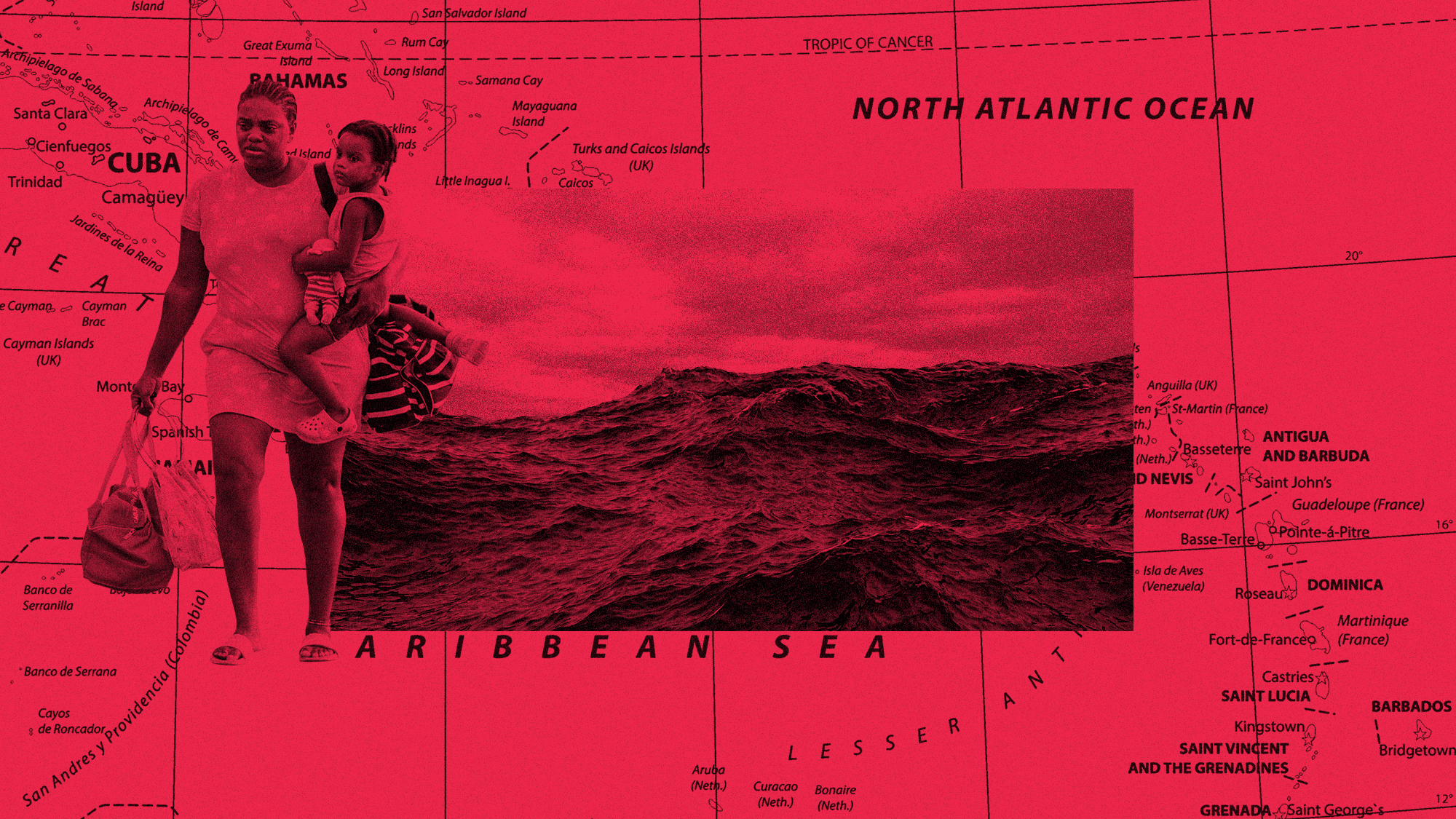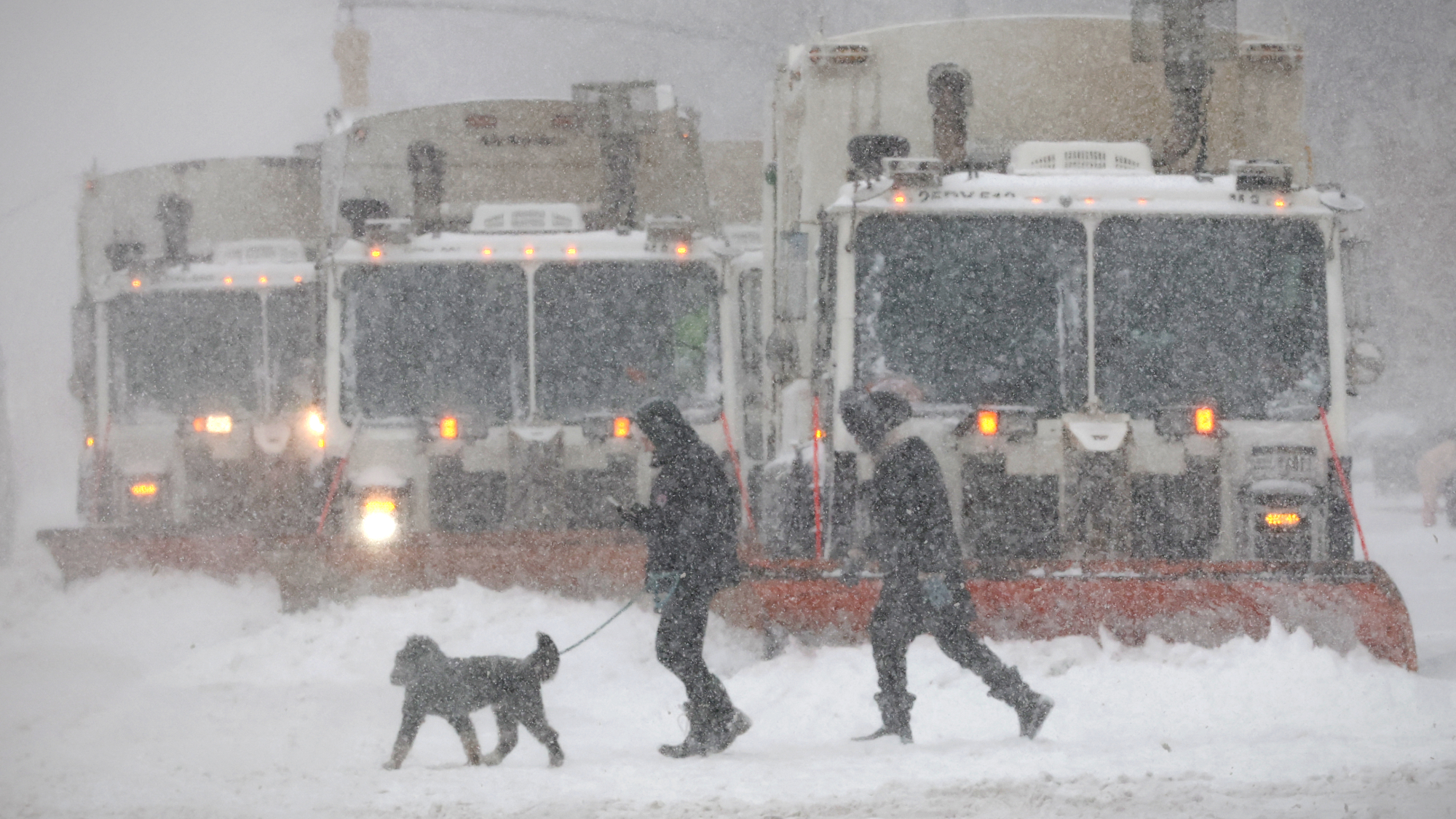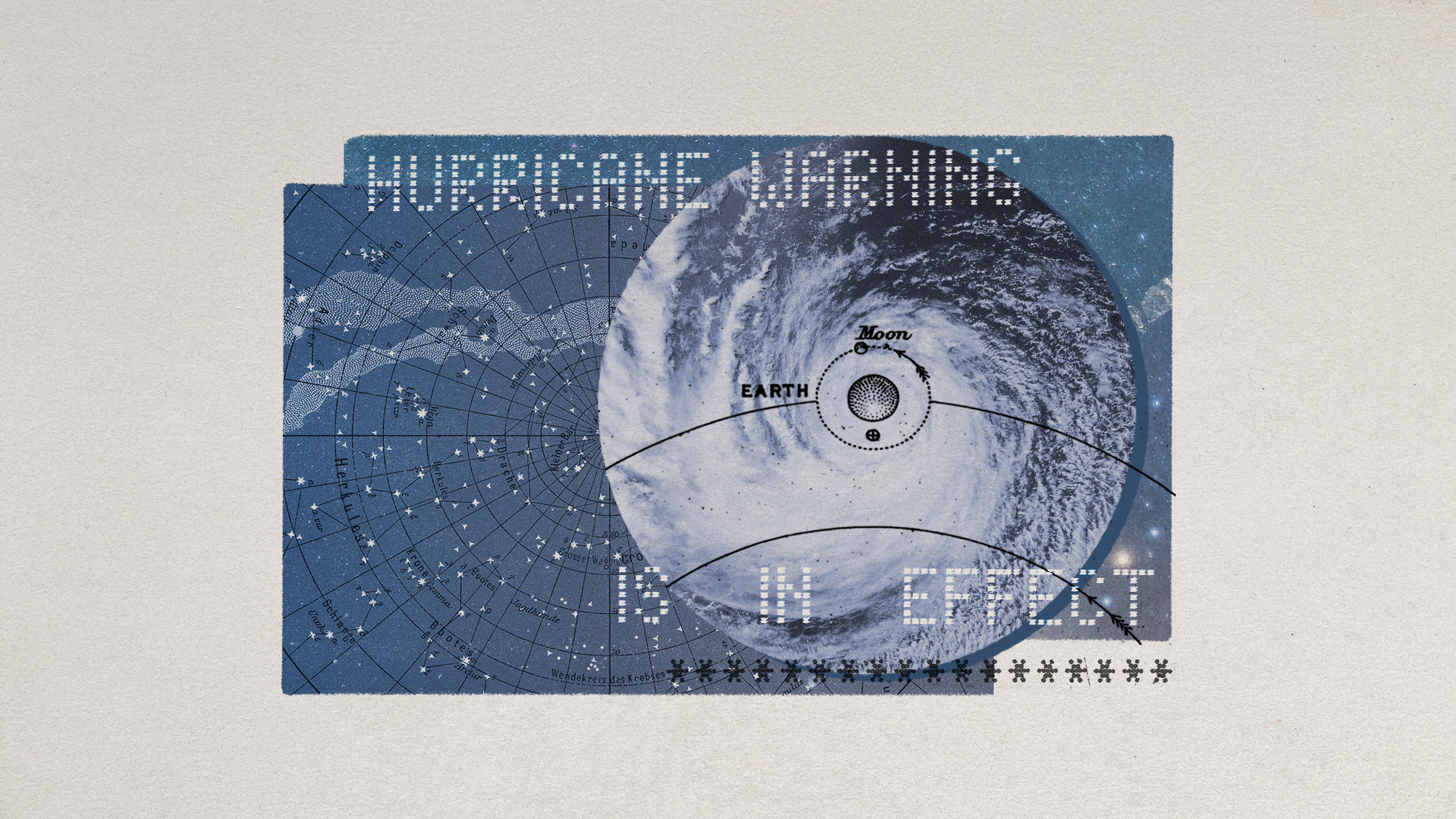Is Hurricane Beryl the sign of another dangerous storm season?
Climate change is fueling the frequency and intensity of storms


A free daily email with the biggest news stories of the day – and the best features from TheWeek.com
You are now subscribed
Your newsletter sign-up was successful
There's no such thing as a good hurricane. But Hurricane Beryl is an "explosive and record-smashing" start to the 2024 hurricane season that is drawing real alarm from weather experts, said USA Today. It's the earliest Category 5 storm on record, with sustained winds of more than 150 mph — a sign that the storms will be coming fast and furious this year. "Unfortunately, Beryl is breaking records that were set in 1933 and 2005, two of the busiest Atlantic hurricane seasons on record," said Phil Klotzbach at Colorado State University.
Scientists were already predicting an "extraordinary" hurricane season this year, NPR said. Official forecasts suggested the season might bring as many as 25 named storms — a typical year brings 14 — with about a third of those developing into "full-blown hurricanes," and somewhere between four and seven "major hurricanes." That's the "largest number of storms ever forecast for the Atlantic." The biggest factor in the onslaught: "Abnormally high water temperatures in the tropical Atlantic, where hurricanes form." Climate change is a big driver of that abnormality. That warm water? It's "fuel for storms."
What did the commentators say?
The busy hurricane season means Americans will "be exposed to months of propaganda about climate change," Robert Sanchez said at The Miami Herald. Anybody who disagrees will be slapped with the label "climate change denier." But it's the climate change "zealots" in the Biden White House who want Americans to "abruptly abandon their lifestyles." That's why climate change skeptics "have an important role to play" in the dialogue about the disasters lashing Florida: They force the experts to "undergird their policy recommendations with indisputable scientific evidence."
The Week
Escape your echo chamber. Get the facts behind the news, plus analysis from multiple perspectives.

Sign up for The Week's Free Newsletters
From our morning news briefing to a weekly Good News Newsletter, get the best of The Week delivered directly to your inbox.
From our morning news briefing to a weekly Good News Newsletter, get the best of The Week delivered directly to your inbox.
Those kinds of attitudes are why "Floridians will apparently have to bootstrap our way through history's biggest existential threat" this hurricane season, Stephanie Hayes said at The Tampa Bay Times. A new law signed by Gov. Ron DeSantis (R) largely erases the word "climate" from state law and "axes a host of other environmental measures." Meanwhile, climate change is fueling such an increase in storm intensity that scientists are discussing whether "there may be justification for a Category 6 hurricane classification." Instead of "playing peekaboo" with climate change, state leaders should work on "meaningful solutions around transportation, energy and development."
What next?
"The world's oceans — as a whole — are heating up," said Scientific American. 2023 saw a new record for global ocean heat, and a marine heat wave in the North Atlantic set daily temperature records for 421 straight days before the streak ended in April. Climate change isn't the only driver of the busy hurricane season that experts are predicting: The planet is currently transitioning from an El Niño cycle to La Niña. But the rising temperatures are why a growing number of hurricanes "will swell into major storms."
The heat won't just intensify storms. It will also batter defenses against those storms. "Most Caribbean nations are surrounded by a colorful patchwork of coral reefs" that "help dampen waves and reduce flooding" during hurricanes, said Vox. But warmer water is killing those reefs, which have declined by 80% in recent decades. The result? "We're losing resilience that iconic ecosystems provide."
A free daily email with the biggest news stories of the day – and the best features from TheWeek.com
Joel Mathis is a writer with 30 years of newspaper and online journalism experience. His work also regularly appears in National Geographic and The Kansas City Star. His awards include best online commentary at the Online News Association and (twice) at the City and Regional Magazine Association.
-
 Bad Bunny’s Super Bowl: A win for unity
Bad Bunny’s Super Bowl: A win for unityFeature The global superstar's halftime show was a celebration for everyone to enjoy
-
 Book reviews: ‘Bonfire of the Murdochs’ and ‘The Typewriter and the Guillotine’
Book reviews: ‘Bonfire of the Murdochs’ and ‘The Typewriter and the Guillotine’Feature New insights into the Murdoch family’s turmoil and a renowned journalist’s time in pre-World War II Paris
-
 Witkoff and Kushner tackle Ukraine, Iran in Geneva
Witkoff and Kushner tackle Ukraine, Iran in GenevaSpeed Read Steve Witkoff and Jared Kushner held negotiations aimed at securing a nuclear deal with Iran and an end to Russia’s war in Ukraine
-
 Winter storm lashes much of US South, East Coast
Winter storm lashes much of US South, East CoastSpeed Read The storm spread across 2,000 miles of the country
-
 How climate change is affecting Christmas
How climate change is affecting ChristmasThe Explainer There may be a slim chance of future white Christmases
-
 Why scientists are attempting nuclear fusion
Why scientists are attempting nuclear fusionThe Explainer Harnessing the reaction that powers the stars could offer a potentially unlimited source of carbon-free energy, and the race is hotting up
-
 Canyons under the Antarctic have deep impacts
Canyons under the Antarctic have deep impactsUnder the radar Submarine canyons could be affecting the climate more than previously thought
-
 NASA is moving away from tracking climate change
NASA is moving away from tracking climate changeThe Explainer Climate missions could be going dark
-
 Hurricanes are not exclusive to Earth. They can happen in space.
Hurricanes are not exclusive to Earth. They can happen in space.Under the radar These storms may cause navigational problems
-
 Why does the US want to put nuclear reactors on the moon?
Why does the US want to put nuclear reactors on the moon?Today's Big Question The plans come as NASA is facing significant budget cuts
-
 What would happen to Earth if humans went extinct?
What would happen to Earth if humans went extinct?The Explainer Human extinction could potentially give rise to new species and climates
